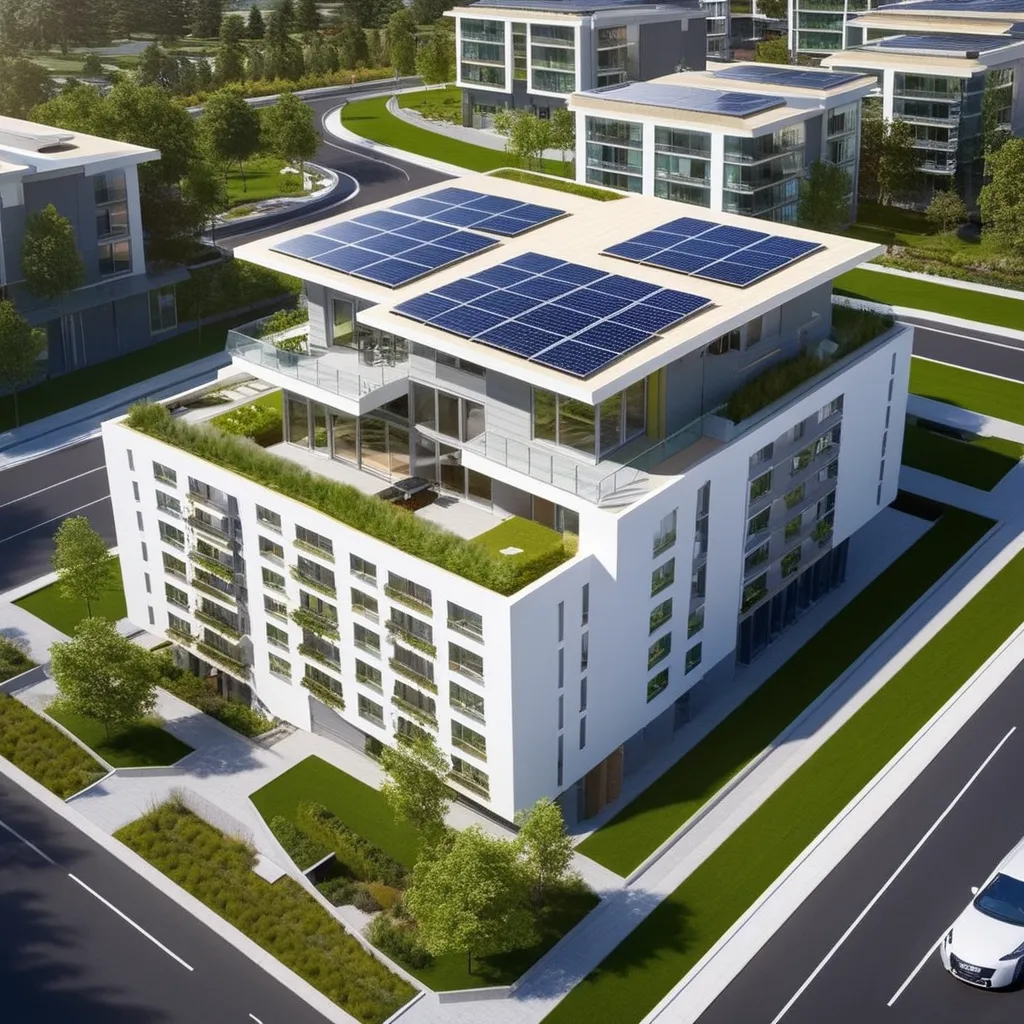The Future of Energy-Efficient Buildings
In an age where environmental consciousness and sustainability are at the forefront of our minds, the construction industry is undergoing a remarkable transformation. Energy-efficient buildings, once a niche concept, are becoming the future of construction. I've had my own journey into the world of sustainable architecture, and in this article, we'll explore how energy-efficient buildings are shaping our cities and homes.

The Shift Towards Sustainability
My interest in energy-efficient buildings was sparked by a visit to a stunning eco-friendly house in my neighborhood.
Sustainability is no longer a buzzword; it's a necessity. As climate change concerns mount, architects, engineers, and builders are rethinking traditional construction methods to create structures that are environmentally responsible and energy-efficient.
Key Elements of Energy-Efficient Buildings
1. Smart Design and Orientation
Energy-efficient buildings often begin with smart design. Architects consider factors like the building's orientation to maximize natural light and minimize heat gain or loss. This reduces the need for artificial lighting and heating, lowering energy consumption.
2. High-Quality Insulation
I remember the winter when I upgraded my home's insulation; the difference in comfort and energy bills was remarkable.
Proper insulation is a cornerstone of energy-efficient buildings. It helps maintain a consistent indoor temperature, reducing the need for constant heating or cooling. This not only saves energy but also enhances comfort.
3. Energy-Efficient Windows and Doors
Modern windows and doors are designed with energy efficiency in mind. They are often double or triple glazed to minimize heat transfer and equipped with seals to prevent drafts. These features make a significant difference in energy conservation.
4. Renewable Energy Sources
I'll never forget the sight of solar panels on my friend's rooftop, silently harnessing the power of the sun.
Renewable energy sources like solar panels and wind turbines are increasingly integrated into energy-efficient buildings. They generate clean energy and reduce reliance on fossil fuels.
Benefits of Energy-Efficient Buildings
1. Lower Utility Bills
One of the immediate benefits of energy-efficient buildings is reduced energy consumption, leading to lower utility bills. Over time, these savings can offset the initial investment in sustainable features.
2. Reduced environmental Impact
Walking through a LEED-certified building, I was struck by the sense that we can coexist with nature harmoniously.
Energy-efficient buildings have a smaller carbon footprint. They consume less energy and often incorporate recycled or sustainable materials, further minimizing their environmental impact.
3. Enhanced Comfort
Improved insulation and well-designed ventilation systems create a more comfortable living or working environment. Consistent temperatures and better indoor air quality contribute to occupant well-being.
The Future of Energy-Efficient Buildings
As I learned more about the future of sustainable architecture, I realized that it's not just about individual buildings; it's about entire cities.
The future holds exciting prospects for energy-efficient buildings:
1. Net-Zero Buildings
Net-zero buildings produce as much energy as they consume. They are the pinnacle of energy efficiency and a goal many architects are working toward.
2. Smart Technologies
The integration of smart technologies will become increasingly common. Buildings will adapt to changing weather conditions and user preferences, optimizing energy use.
3. Urban Planning
Cities will embrace sustainable urban planning, incorporating green spaces, renewable energy sources, and public transportation to create eco-friendly communities.
Embracing a Sustainable Future
Energy-efficient buildings are not a passing trend; they are the future of construction. Whether you're building a new home, renovating an existing one, or simply looking for ways to reduce your environmental impact, energy-efficient building practices offer tangible benefits.
In the end, the future of energy-efficient buildings is not just about saving energy; it's about preserving our planet for generations to come.<

No comments:
Post a Comment